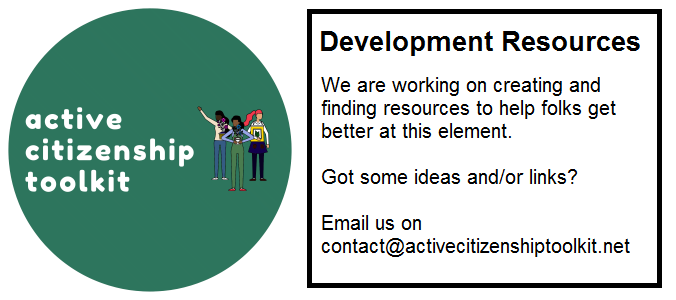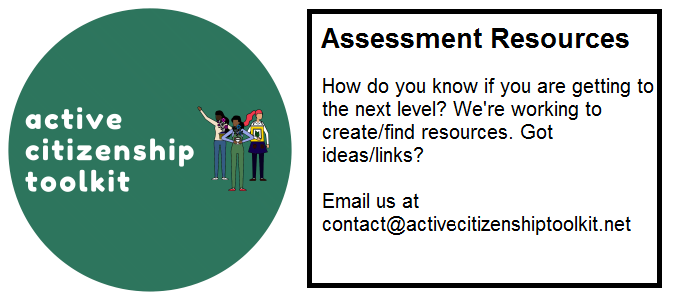Element Descriptor
Not all social movement organisations do or should produce reports. But for those groups who deem them an effective way to further their aims, reports are a vehicle for offering independent analysis, bringing hidden information to light and challenging the dominant narrative. At their best, reports to useful to a wide range of citizens and other groups, and are produced collaboratively with others.
NB – There are many sub-elements to this (research, Freedom of Information Act requests, writing, copy-editing, layout, proof-reading. This is an element, but also part of a compound. It’s best seen as a group -level skill more than an individual one),.
Level descriptors
| Novice | Practitioner | Expert | Ninja |
|---|---|---|---|
| Happy to turn around or contribute to a short, factually accurate report on an issue where they have good prior expertise and/or with support from others who have produced material on a related topic. | Plans, researches and produces a range of reports, from quick-turn around briefing papers to longer reports which draw on a variety of data sources and methods. The content may be complex, sensitive or be at the edge of their own expertise. Able to work collaboratively with other-groups. Some consideration given to dissemination. | Regularly coordinates a suite of co-produced and well-researched reports. The documents will be readable and well designed, combining novel or complex data with authoritative analysis. Reports will be accompanied by a targeted communications strategy, and will be shared or cited by others. | Produces seminal reports on an impressive arrange of subjects that gain significant traction and make a significant intervention into, nay transform, the policy landscape. |
Element Overview Essay
This is a draft. If something doesn’t make sense, or you see typos, or if you have further ideas, please email us on contact@activecitizenshiptoolkit.net
The cause of this being done badly is lack of experience and lack of iterative learning. And of course, if you’re too ambitious, and you’re trying to do something bigger than your resources, cognitive, physical, financial, will allow the consequences of being bad at reports.
Consequences? If you don’t put the information out into the public domain in ways that other people will find particularly useful. This has an impact on your credibility, on your morale, on whether you can turn a problem into an issue, whether you can get it on the agenda, whether you can keep it on the agenda. And whether you can force actual change in policy or policy implementation, which is a large part of why you would be writing a report, usually, though, obviously, you might be writing reports about civil society in the hope that other civil society organisations will take on board what you’re saying.
So, the fixes, there are lots of them. You can study other, “successful” reports and see how they were done. You can copy the agreed format as you know, it’s a glossy cover, the executive summary, the various sections nicely laid out the references the what next blah, blah.
But you should never see a report as a powerful thing in and of itself. You need to look at it as part of a process. So who put the report together? How? How you launching it? What afterlife is it going to have on social media? What ways can you get it signal boosting and beyond? Write reports Well, you get better at them.
Which brings us to the next point. Try and have someone do a post-mortem of the product who’s been in no way connected to it so they can criticise the language, the typos, the layout, and have someone maybe the same person, maybe someone else who can do an overview of the process. Was there an inefficiency? Did someone get hacked off that they were given too much work or not enough work or not enough of autonomy and then feed those post-mortems into your ongoing process, so that you get better at producing reports.
Development Resources

Assessment Resources

